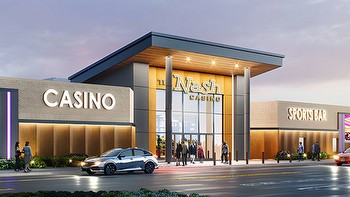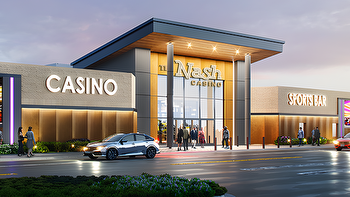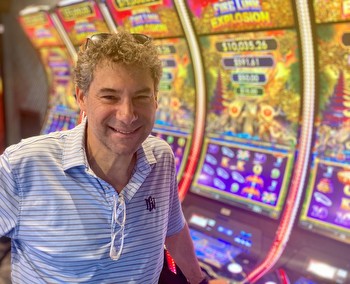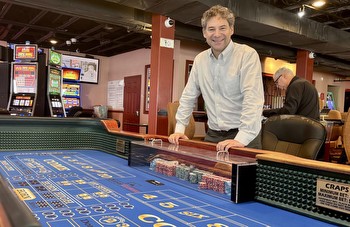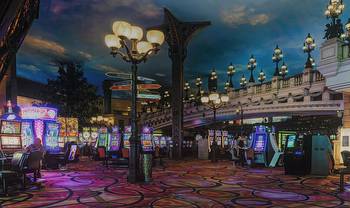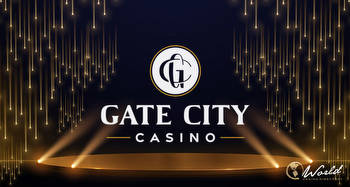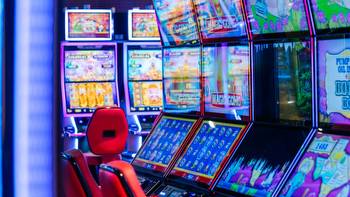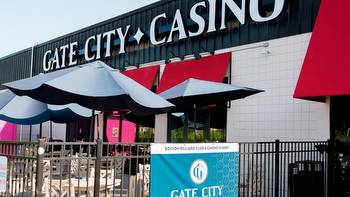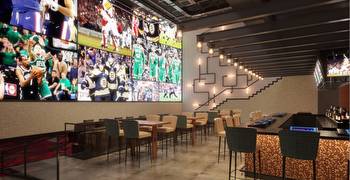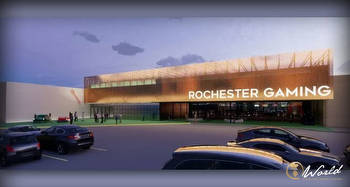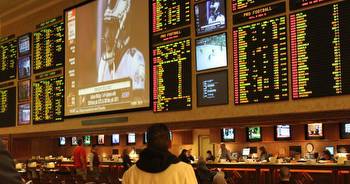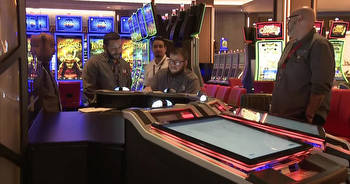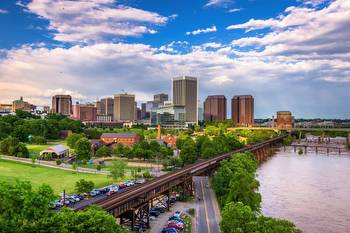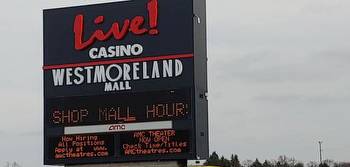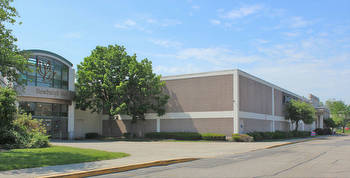Nashua planners to consider proposed casino at Pheasant Lane Mall

At a former Sears store, consumers who once searched for bargains on toasters, vacuum cleaners and air conditioners may soon test their fortunes at slot-like machines and card tables.
ECL Entertainment, together with Clairvest, a Toronto-based private equity firm, plans to open a 130,000-square-foot charitable gaming facility at the southeastern corner of the Pheasant Lane Mall in Nashua in late 2024. In opening the site, ECL will transfer the licenses from its earlier acquisition of The Lucky Moose Casino & Tavern and The River Casino & Sports Bar, also in Nashua.
ECL owns and operates multiple historical horse racing facilities in Kentucky, including the Mint Casino at Kentucky Downs. A presentation of the company’s plans and a public comment session is scheduled for Sept. 7 at Nashua City Hall.
Casinos have been growing in number in New Hampshire since 2006, when the state passed a law enacting a charitable gaming model – the only one in the country where the operator and not the state sends funds to the charity. Eligible 501(c)(3) organizations registered with the Secretary of State can host up to 10 days at a casino to receive 35% of gross gaming revenue from table games. The law also requires casinos to give 10% to the New Hampshire Lottery to support public education.
The gaming industry in New Hampshire received an additional boost when, in 2021, the Legislature passed a law allowing HHR machines. It became the only state in the Northeast to legalize them and the sixth in the country after Kansas, Kentucky, Louisiana, Virginia and Wyoming passed similar laws.
Gross gaming revenue calculations to charities from HHR machines diverge from those related to table games. With HHR machines, the operator keeps 75% and gives 8.75% to the charity and 16.25% to public education.
From the players’ standpoint, HHR machines look and act much like casino slots, but the technology behind them differs. HHR machines randomly select race results from a database of thousands of old races; slot machines use a random number generator to determine the outcome. Detractors of HHR machines argue they are designed to skirt the legal definition of slot machines.
Preliminary sketches of ECL’s mall-based casino show two levels of poker and casino rooms, golf simulators, a two-story sports entertainment complex with a full bar, restaurants and a smaller cafe and more than 50,000 square feet to lease to other tenants. The drawings indicate space for another 300 slot machines at a later date.
A mall conundrum
ECL Entertainment is investing nearly $250 million into the city of Nashua, according to managing partner Marc Falcone. This includes an overhaul of the former Sears location and roadway construction to improve traffic flow.
“The idea here is to build a first-class entertainment facility,” says Falcone.
The company expects to create 700 new jobs and contribute about $22 million in annual payroll and related expenses.
Falcone says the casino will offer more managerial opportunities compared to those available at a restaurant or retail store. “We believe strongly that we can grow our talent base within the organization and promote from within,” he says.
Pending the planning board’s approval, the casino will become New England’s first in a shopping mall. The Sears store in the Pheasant Lane Mall, whose parking lot crosses into Massachusetts, has been empty since 2020.
That vacancy is a huge problem for Simon Property Group, which owns the mall, says Mark A. Cohen, director of retail studies at Columbia University.
A vacant anchor typically creates an empty parking field, he says. Customers who would normally enter the mall through the former store can no longer do so.
“These parking fields take on the appearance of the entire mall being out of business. When a mall’s tenancy declines, it tends to become less pristine: the parking lot degrades; the outdoor lighting is not as seriously maintained. In some respects, it is less safe,” Cohen says. “What to do? They [consumers] avoid the place.”
Cohen says malls are scrambling to prevent the death spiral that occurred in many shopping malls in the United States.
Maintaining foot traffic is vital for property management companies like Simon, says Scott Latham, a strategic management professor at the University of Massachusetts in Lowell. It’s their number one asset to prospective tenants and critical for lease renewals.
In the battle against e-commerce and competition from modern open-air lifestyle centers, malls are getting creative. They’re thinking beyond retail to attract crowds. In many parts of the country, malls are adding housing, movie theaters, gyms, grocery stores and amusement parks.
Contrary to the popular narratives, this reallocation of mall space is fueling a post-COVID resurgence, at least in higher-end shopping centers, says Latham. He points to data from Coresight Research, a retail advisory and research firm, which reports that in 2022, mall occupancy rates averaged 95.1% in 2022, almost level with pre-pandemic rates.
For large companies like Simon with significant investments in real estate, a casino fills a gap, he says. “It's good for the economy, it creates jobs, it creates tax revenues.”
Economic vitality vs societal woes
What’s less certain is whether a gambling venue will create tax burdens relative to addiction. That’s for the community to decide, Latham says.
Slot machines, which play faster than other gambling games, are designed with colors, flashing lights and sounds to encourage repeat plays. Research from Brown University revealed that individuals who regularly play slots develop addiction issues at a rate three to four times faster than those who play table games or bet on sports.
Bill Ohm of Nashua worries about people in financial distress who may turn to the mall to escape their troubles. He says the presence of a casino could lead gambling addicts to seek quick cash after a bad day.
A relatively small percentage of people encounter problems because of gambling, says Ed Talbot, the executive director of the nonprofit New Hampshire Council on Problem Gambling. Talbot refrains from taking a stance on proposed casinos. His goal is to ensure gambling addicts find resources directing them to social services.
New Hampshire operates a voluntary self-exclusion policy, which Talbot says is impractical. “You have to go to each casino in order to self-exclude,” he says. “If you’ve got a person with a problem, you've got to send them into a place where gambling is being provided. It doesn't seem to make sense.”
Talbot favors the statewide program offered in Massachusetts, where individuals can exclude themselves from any licensed gaming operator.
Talbot would like to see representation from the problem gambling council on the newly formed charitable gaming commission. The 13-person committee is evaluating whether charities are getting a fair distribution of revenues.
Addictive gambling is not the only contention for Ohm, who lives in south Nashua near the mall and is a former deputy Republican whip in the New Hampshire House. He says that other than supervisory staff, this is a missed opportunity for higher wage employment.
“If we wanted to encourage high-tech jobs, such as in manufacturing or pharmaceuticals, we might take that approach instead of using that space for the casinos.”
Ohm also objects to what he calls “a really sweet deal with no licensing fee of any consequence.”
Gambling establishments in New Hampshire pay a licensing fee of $750 a year, whereas a Massachusetts slot parlor requires an initial license fee of $25 million.
“That's why you have these out-of-state companies rolling in here to buy up these small gaming operations,” he says.
A growing industry
In October, Delaware North, the billion-dollar hospitality and entertainment company which owns Boston’s TD Garden and the Boston Bruins, purchased the Boston Billiard Club & Casino. This August, it expanded with a retail DraftKings Sportsbook and renamed the facility the Gate City Casino. Plans are in the works to move to the Sheraton Nashua hotel, only a mile and a half away from the Pheasant Lane Mall and the Massachusetts border.
Eureka Casinos of Las Vegas owns The Brook in Seabrook. The Boston-based Lupoli Companies own Aces & Eights and the Hampton Beach Casino and is looking to invest up to $400 million to redevelop that Ocean Boulevard property.
Last year, Churchill Downs Inc. acquired the Chasers Poker Room in Salem. Churchill Downs is a publicly traded company with vast holdings in racetracks (including the track where the Kentucky Derby is held), casinos and an online wagering company among its portfolio of businesses.
In a joint effort with Los Angeles-based Peninsula Pacific Entertainment, Manchestere developer and investor Dick Anagnost operates Filotimo Casino in Manchester and Dover, with plans to open others around the state.
Falcone says all of these acquisitions represent the transition from mom-and-pop shops to more commercialized operations with decades of experience.
A fundraising equation
As an aggregate, the 14 charitable gaming locations in New Hampshire donated more than $17.7 million from games of chance in 2022. To date, in 2023, charities raised $23.3 million according to Charlie McIntyre, executive director of the New Hampshire Lottery, which regulates gambling in the state.
By 2025, the Pheasant Lane mall venue is projected to raise nearly $24 million per year to charitable causes, according to Falcone. Last year, the Lucky Moose and River gave nearly $1.8 million to 108 local nonprofits.
ECL Entertainment is at the top of the agenda for the next planning board meeting on Sept. 7 at Nashua City Hall. Unless issues are raised which require further study, board members will decide that evening whether to give the proposed casino the green light, according to city planning manager Sam Durfee.
“A casino in the mall? No one would have predicted this 25 years ago,” says Latham.
Are people going to gamble and then shop at Target? “If I had to venture a guess, I would say yes.”
If you or someone you know has a gambling addiction, call the NH Council on Problem Gambling at 603-724-1605.
•••
These articles are being shared by partners in The Granite State News Collaborative. For more information visit collaborativenh.org.








